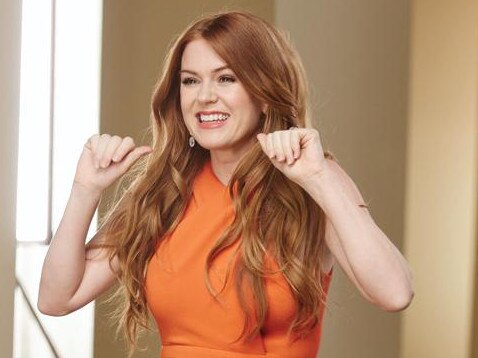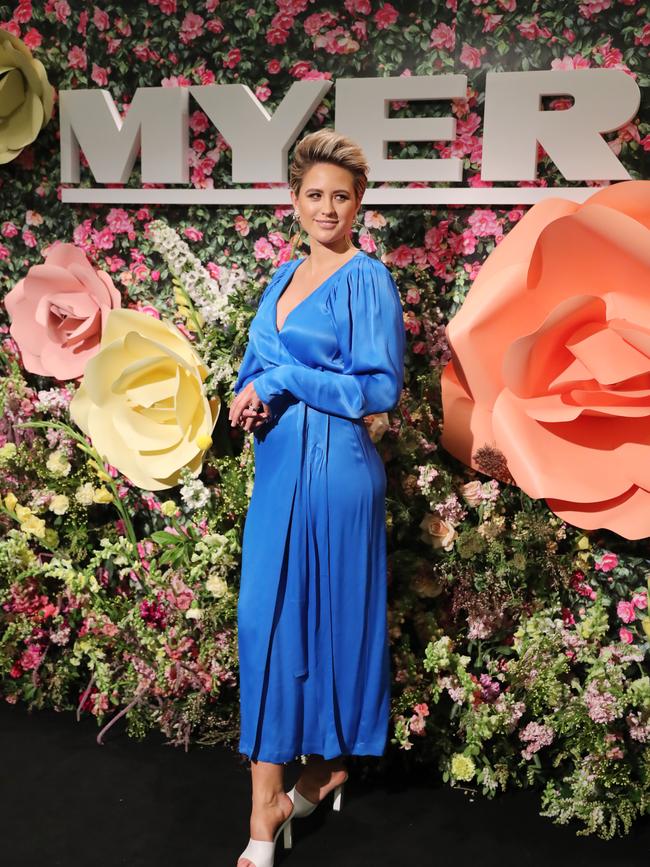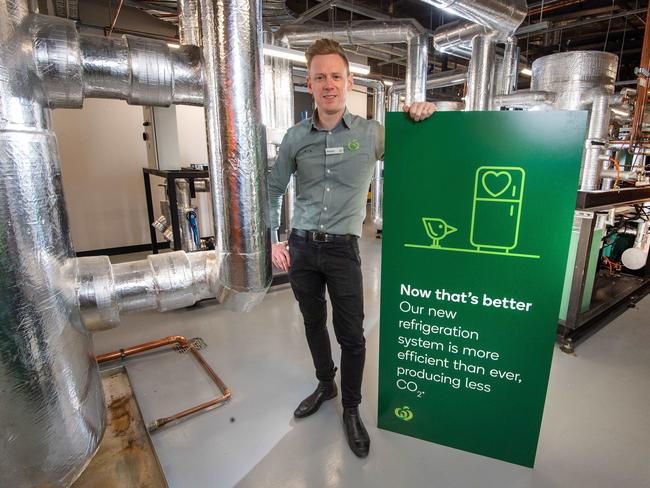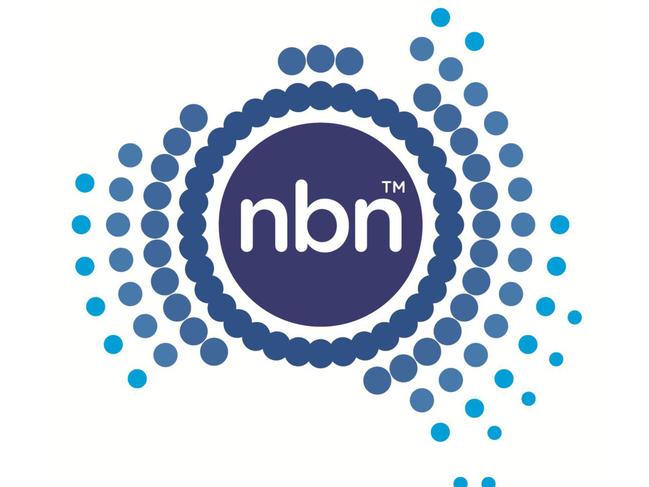Best and worst brands in Australia with the healthiest and unhealthiest reputation
Apple, Woolworths, ING and Myer are just some of the companies which made this year’s list of the best and worst brands in Australia based on their reputation.
Companies
Don't miss out on the headlines from Companies. Followed categories will be added to My News.
Exclusive: Just one Australian bank – ING – has a healthy reputation.
But the big four fall well behind ING in regards to their culture, which they need to change to improve their brand with consumers.
The bank, which has Australian celebrity ambassador Isla Fisher as its face, was rated above all others in the 2019 National Reputation Health Report, which revealed the top 100 companies with the healthiest reputations.
The report, produced by the Brand Institute of Australia, asked 2000 consumers about brand image and their operations, products and services, social responsibility, innovation, communication, financial performance and customer values.
ING had the healthiest reputation in the banking category and was the most recognisable bank overall in the top 100 list sitting in 44th place, beating Bendigo Bank (55th), Westpac (56th), CBA (61st), ANZ (70th), NAB (73rd), and AMP (88th).
The Brand Institute of Australia’s CEO Karl Treacher told News Corp the overall health and reputation of a company can always be traced back to its culture.
“A bad reputation can be traced back to cultural dysfunction,” he said.
“All of the big brands are here and people know them and love them but for some, their credibility is being challenged.”
Associate Professor Treacher also said many of the companies listed could have invested in an “early warning system around culture and misconduct”, to protect their reputation in the public eye.
“It can be easily identifiable if they had the right tools in front of them before it becomes a reputation scandal, especially for those in financial services,” he said.

He said the Institute’s report comes after the fallout from the Royal Banking Commission and the ASX Corporate Governance Council which updated its Principles & Recommendations in February this year for entities listed to say they should “instil a culture of acting lawfully, ethically and responsibly”.
“This includes the need for the entity to preserve and protect its reputation and standing in the community and with key stakeholders, such as customers, employees, suppliers, creditors, law makers and regulators.”
Crisis and issues management expert Peter Wilkinson from the Wilkinson Group told News Corp “companies that don’t live up to community expectations are going to get hammered”.
“Companies can’t make mistakes and if they do they’ll have to apologise and rectify it quickly,” he said.
“That’s why the banks have done so badly.
“We are in a world now where customers are impatient and the relationship has been flipped where the customer has the dominance … it never used to be that way.”
ING Head of Retail Banking Melanie Evans told News Corp it continued to remove obstacles stopping people doing the things they want to do and that includes their bank.
“From our start in Australia 20 years ago, ING has focused on simple and easy to understand products and services, which allow our customers to do the things they want to do as quickly and easily as possible,” she said.

CBA was the only bank to enter report’s top 20 list of companies at the top of people’s minds in 16th place, which was dominated by Apple in first place, followed by Telstra and Woolworths in second and third place.
Woolworths also beat Coles and Aldi as the healthiest brand among the major supermarkets.
But in the retail and department store categories, David Jones didn’t rank anywhere, losing out to Kmart, Big W and Target which have the healthiest brands as Myer took out the top spot for the unhealthiest brand.
MORE NEWS
Aussies rate 69 best products you can buy right now
Coles’ $5.50 bottle of wine wins major award
CBA to rip out more ATMs as fees rise


Some of the worst brands overall are led by Centrelink in first place followed by Adani, Tiger Airways, Monsanto, Exxon, EA Games, Dodo, Zara and the NBN.
Mr Wilkinson said some directors and CEOs of companies are still living in a world that vanished 15-20 years ago.
“The revolution of instant news, social media, having a rapid response, people’s short concentration spans and instant access on devices … it’s affected everything,” he said.
“And there are some companies that are unpopular if they do damage to our health, the environment, economy and lifestyle.
“It’s just not necessary, the decision to make customers less important than the rest of the business and their profits.”
TOP 20 MOST ‘TOP OF MIND BRANDS’ IN AUSTRALIA:
1. Apple
2. Telstra
3. Woolworths
4. Coles

5. Coca-Cola
6. BHP
7. Nike
8. Samsung
9. Qantas
10. Google
11. Kmart
12. Optus
13. Sony
14. Amazon
15. Macca’s

16. CBA
17. Bunnings
18. Microsoft
19. Toyota
20. eBay
TOP 10 HEALTHIEST BRANDS IN AUSTRALIA
1. Google
Google has by far the healthiest reputation in Australia, and is particularly outstanding in innovation as well as communication and financial performance; but is not particularly healthy with regard to perceptions of social responsibility.
2. Bunnings
Bunnings is recognised as having the healthiest reputation against all organisations in the area of ‘operations’ and is recognised as having very salient communications.
3. Samsung
Samsung’s products and services are perceived to be second to none, and are enhanced by impressions of the company prioritisation of innovation. Samsung’s perceived lack of social responsibility is one of its only areas of reputation weakness.
4. Apple
Having the most balanced reputation across all drivers delivers Apple to number 4 in the healthiest reputation list. Only perceived Customer Value and Social Responsibility let it down.

5. Qantas
Within striking distance of Apple and Samsung is Australia’s most iconic organisation. Qantas’s reputation health is buoyed by perceptions of it Operations, Products and Services and Communications.
6. Woolworths
Perceived to be significantly more socially responsible than Coles and with far superior customer value, Woolworths enjoys the healthiest reputation in Grocery in Australia.
7. Microsoft
Believed to be better run than Samsung and Apple, Samsung is recognised as having the third healthiest reputation in the Tech industry. Against its immediate competitors, Microsoft is let down by perceptions of its communications and to a lesser extent its products and service.

8. Toyota
The Japanese car manufacturer is the only automotive company recognised on the top 20 healthiest reputations list. Toyota’s communications are seen to be far superior than all other car manufacturers on the 100 most recognisable list.
9. Officeworks
Officeworks performs well across all reputation drivers but is perceived to be particular well run with exceptional products and services.
10. RSPCA
RSPCA has the healthiest reputation for social responsibility in Australia and is perceived to be very well run, providing strong products and services.
10 UNHEALTHIEST BRANDS IN AUSTRALIA (from worst to 10th worst):
1. Centrelink
2. Adani
3. Tiger Airways
4. Monsanto
5. Malaysia Airlines
6. Exxon
7. EA Games
8. Dodo
9. Zara
10. NBN

BRANDS BY CATEGORY (based on their operations, products and services, social responsibility, innovation, communication, financial performance and customer values):
Banking/Finance brands with the healthiest reputation:
1. ING
2. Bendigo Bank
3. Westpac
Banking/Finance brands with the unhealthiest reputation:
1. AMP Banking
2. BOQ
3. NAB
Retail brands with the healthiest reputation:
1. Bunnings
2. Officeworks
3. IKEA
Retail brands with the unhealthiest reputation:
1. Zara
2. Lush
3. Rebel
Department stores with the healthiest reputation:
1. Kmart
2. Big W
3. Target
Department stores with the unhealthiest reputation:
1. Myer
2. Target
3. Big W
Source: 2019 National Reputation Health Report, The Brand Institute of Australia
